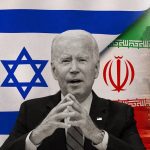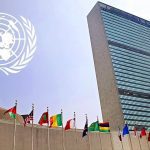Time: Early sixties of the past century. Place: 5 Ahmed Heshmat St., Zamalek, Cairo. Issue: Liberation movement and self-determination in the African continent. What was happening at that time and place was an unprecedented historical process for Africa, regaining its independence since European states started colonizing African countries. Sometimes these states drained the wealth of Africa at other times they abducted its human resources through slavery and reshaped its political entities, not according to identity and societal ties. But those divisions were exacted as specified by agreements signed among European states.
Within this unjust equation, Egypt was getting out of the mantle of British occupation in order to regain its African origins – that can’t be denied or ignored – through supporting liberation movement leaders in different African countries who chose Cairo as the forum and starting point for their liberation, and of course Egypt played a role in establishing the African Unity Organization, which later became the African Union (AU).
African countries finally gained their independence, and their voices became heard among international organizations, along with Asian and South American countries and all states that were called the “South”. They represented common interests in a world suffering the aftermath of the Cold War and divisions based on ideologies of socialism and capitalism.
The path of independence wasn’t less difficult than the struggle for it. In spite of strenuous efforts for development and progress, the African continent remained the least fortunate among the world’s countries due to the colonial heritage, lack of experience and ethnic divisions. The last few decades of the 20th century weren’t merciful to the African continent, when the internal conflicts escalated and were blended with ethnic divisions and international conspiracies. The ethnic cleansing operations were rife, side by side with epidemics like AIDS and Ebola. Thus, the African countries ranked the lowest in most of the overall development indicators in the world. It seemed that the world was ready to ignore the African peoples’ dire situation. However, the beginning of the 21stcentury witnessed a fresh start for the continent. African countries suffering from racial discrimination got rid of the “apartheid” and the African majority ruled those countries. Gradually, civil wars receded, political settlements were reached, and African countries gained some strength. It became possible to contain epidemics and prevent famine from spreading.
Now while Africa is living a stage of recuperation following historical and contemporary crises, the 21stcentury is imposing its challenges on the continent which has lagged for too long behind the rest of the world. The first challenge stems from the fact that the continent didn’t catch up with the industrial revolutions because of colonialism, during the first revolution, and the burdens of liberation and independence, during the second. Today Africa is witnessing with the rest of the world the third industrial technological revolution and is carefully anticipating the imminent fourth revolution that combines two sub-revolutions: infotech and biotech. In order to protect its peoples and independence, Africa has no option but to catch up with the world this time without delay, and stop looking back.
The second challenge is linked to the first, relating to the economic, social and cultural development that suits the 21st century. The fact is, Africa has an abundance of resources and in the past two decades it became rich with successful experiences which have placed African countries on the international map of competition. Regional African cooperation in the fields of energy, water, health, education and others can enhance the competitive capabilities of African countries.
The third challenge is that the world order has changed. The world isn’t ruled by two super powers engaged in a cold war, and the world order isn’t governed by “globalization” led by one country that’s the US. There are multiple powers that are cooperating and competing, even if there were heavy weights such as the US, Russia and China. It is established that these three powers, along with some European countries, Japan and emerging countries in Asia and South America are competing for Africa. It has become imperative that the African countries use this competition in the favor of the continent and humanity in its entirety.
The fourth challenge is that Africa should terminate all conflicts and disputes that dragged it behind in the past decades to be able to move ahead. Perhaps the AU can contribute to solving these obstacles through dispute resolution mechanisms and joint development of resources and potentials.
Egypt is a key partner in confronting these challenges due to its historical status, being the cradle of the African civilizations, and due to its geographical location, being Africa’s gateway to Asia through the Sinai Peninsula and Europe through the Mediterranean Sea. Whether Cairo was an essential part of the African liberation movement or the economic and social reformation process, it is now seeking full partnership to confront the aforementioned challenges.
This article was first published in: Egyptian Center for Strategic Studies, Africa 2019… Equilibrium Severs … Promising Future, Cairo, March 2019.











